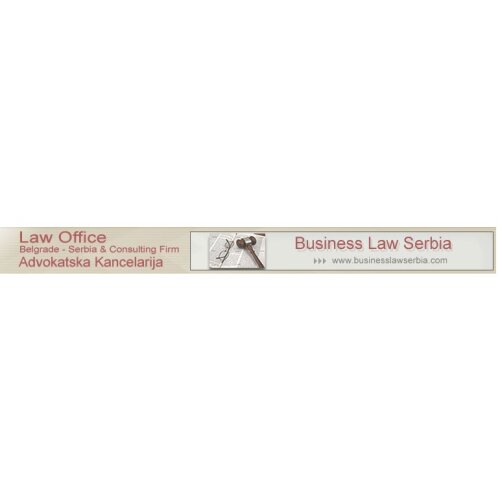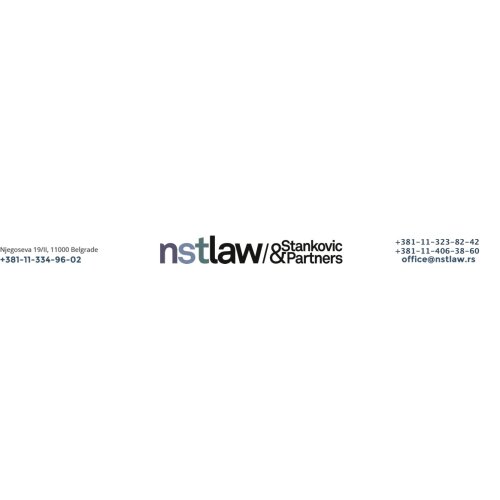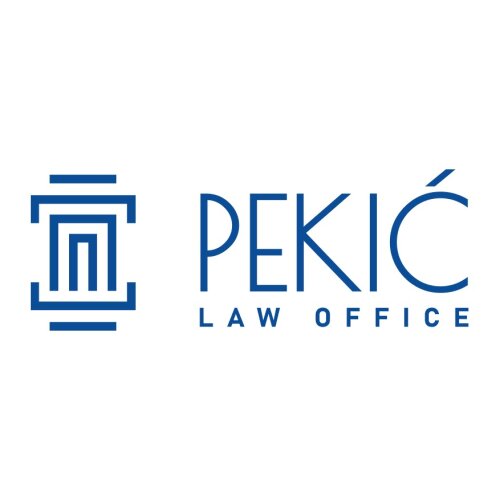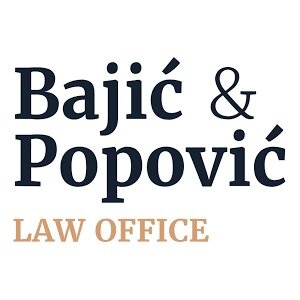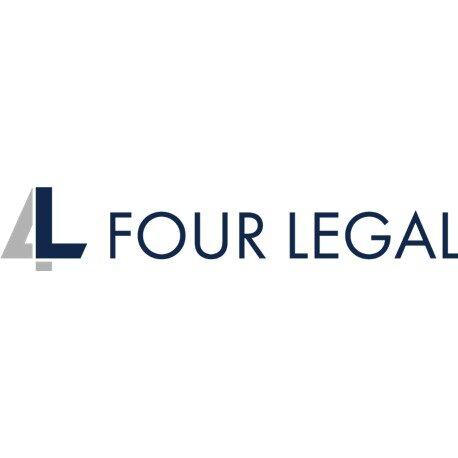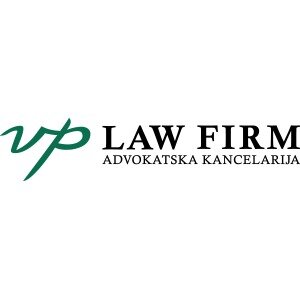Best Water Law Lawyers in Serbia
Share your needs with us, get contacted by law firms.
Free. Takes 2 min.
Or refine your search by selecting a city:
List of the best lawyers in Serbia
Legal guides written by Business Law office - Advokatska Kancelarija:
- Why Invest In Serbia
About Water Law in Serbia
Water Law in Serbia is a specialized field that governs the management, use, and protection of water resources throughout the country. Water Law includes regulations on freshwater, ground water, public and private water rights, permits required for water use, and environmental standards related to the conservation of rivers, lakes, and other water bodies. The main legal framework is the Law on Waters, along with related legislations such as the Law on Environmental Protection, which align with EU water management directives and standards due to Serbia’s ambitions of EU accession. These laws aim to ensure sustainable water use for current and future generations, protect water quality, regulate water-related land use, and resolve disputes concerning water rights and obligations.
Why You May Need a Lawyer
People may need specialized legal assistance in Water Law for a variety of situations. Common scenarios include disputes over water rights, obtaining permits for water use or construction near water bodies, navigating regulatory compliance for businesses, resolving conflicts related to pollution and contamination, and defending against penalties or sanctions for alleged breaches of water regulations. Developers, agricultural entities, factories, and even private landowners may find themselves in need of guidance to understand their responsibilities and protect their legal interests. A Water Law lawyer can help with drafting and reviewing contracts, representation before administrative bodies, litigation, negotiation with stakeholders, and ensuring compliance with both national and international water standards.
Local Laws Overview
Serbian Water Law is primarily governed by the Law on Waters, which establishes the principles, rights, and obligations of water use in Serbia. Some key aspects include:
- Public Water Goods: Water resources are considered public assets, managed by the state for the common good. Private ownership of water is not recognized, but certain usage rights can be granted through permits.
- Permits and Licenses: Any use of water resources, construction, or activities near water bodies require appropriate permits from relevant authorities. This applies to abstraction, discharge, construction, and communal or industrial use.
- Environmental Protection: Strict regulations limit pollution, require environmental impact assessments (EIA) for projects near water sources, and provide for remediation duties.
- Flood and Drought Management: There are laws concerning flood prevention, maintenance of flood defenses, and procedures during droughts to protect water supplies.
- Dispute Resolution: Disputes regarding water rights or damages are resolved by competent courts, with administrative appeals possible in cases of permitting decisions.
- Alignment with EU Standards: Serbia is aligning its legislation with the EU Water Framework Directive, which impacts the way water bodies are managed and protected.
Frequently Asked Questions
Who owns the water resources in Serbia?
In Serbia, water resources are state-owned and considered public goods. Individuals and companies can obtain the right to use water through permits, but cannot own water bodies.
What is required to legally use water from a river, lake, or well?
Legal use of water resources typically requires an administrative permit from the relevant water management authority. This applies to both surface water and groundwater extraction.
Can I build near a river or other water body?
Construction near water bodies is heavily regulated. You must obtain permits and comply with setback distances, flood protection requirements, and environmental assessments as mandated by law.
What are the penalties for polluting water sources?
Penalties can include fines, orders to pay for remediation, suspension of activities, or in severe cases, criminal prosecution. The level of penalty depends on the scope of the violation and resulting harm.
Does Serbian law address water quality standards?
Yes, there are strict water quality standards for both drinking water and environmental protection. These standards are regulated in line with EU requirements.
How are water disputes resolved?
Water disputes can be resolved through administrative procedures, mediation, or taken to civil courts depending on the nature and complexity of the dispute.
Are there special rules for industrial water use?
Industries must obtain specific water permits for intake and discharge, adhere to strict quality standards, and comply with monitoring requirements to minimize environmental impact.
How does climate change affect Water Law in Serbia?
Climate change impacts, such as increased flooding, droughts, and water scarcity, are now addressed through amendments that focus on risk management, adaptation, and improved resilience in water management.
What are my obligations as a landowner with a water course on my property?
Landowners must not obstruct natural water flows, are responsible for maintaining riverbanks, and can be liable for any harm caused by failing to adhere to water management rules.
Can water rights be transferred or inherited?
Permits for water use are generally non-transferable and tied to specific uses or properties. Inheritance or transfer may be possible in limited circumstances upon approval by authorities.
Additional Resources
For those seeking further information or assistance, the following resources are valuable:
- Ministry of Agriculture, Forestry and Water Management: Central authority for water management and issuance of permits.
- Republic Water Directorate: Key role in regulation, monitoring, and implementing water policies.
- Environmental Protection Agency of Serbia: Responsible for water quality monitoring and reporting.
- Local municipality water departments: Handle local water issues and community-based requests.
- Chamber of Commerce and Industry of Serbia: Provides resources for businesses dealing with water regulations.
- NGOs such as WWF Serbia and local environmental initiatives: Offer advocacy, education, and occasionally legal support concerning water rights and environmental protection.
Next Steps
If you need legal assistance regarding Water Law in Serbia, start by gathering relevant documentation such as property deeds, permits, correspondence with government bodies, and records of the situation requiring legal advice. Identify whether your issue involves permits, disputes, environmental concerns, or business compliance. Many lawyers in Serbia specialize in environmental and water law - consider reaching out to local bar associations for recommendations or using available directories to find a legal expert. Schedule a consultation to discuss your situation in detail and determine the best course of action to protect your interests and ensure compliance with the law. Legal professionals can guide you through administrative procedures, represent you in negotiations or court, and ensure your rights concerning water resources are fully protected.
Lawzana helps you find the best lawyers and law firms in Serbia through a curated and pre-screened list of qualified legal professionals. Our platform offers rankings and detailed profiles of attorneys and law firms, allowing you to compare based on practice areas, including Water Law, experience, and client feedback.
Each profile includes a description of the firm's areas of practice, client reviews, team members and partners, year of establishment, spoken languages, office locations, contact information, social media presence, and any published articles or resources. Most firms on our platform speak English and are experienced in both local and international legal matters.
Get a quote from top-rated law firms in Serbia — quickly, securely, and without unnecessary hassle.
Disclaimer:
The information provided on this page is for general informational purposes only and does not constitute legal advice. While we strive to ensure the accuracy and relevance of the content, legal information may change over time, and interpretations of the law can vary. You should always consult with a qualified legal professional for advice specific to your situation.
We disclaim all liability for actions taken or not taken based on the content of this page. If you believe any information is incorrect or outdated, please contact us, and we will review and update it where appropriate.
Browse water law law firms by city in Serbia
Refine your search by selecting a city.




